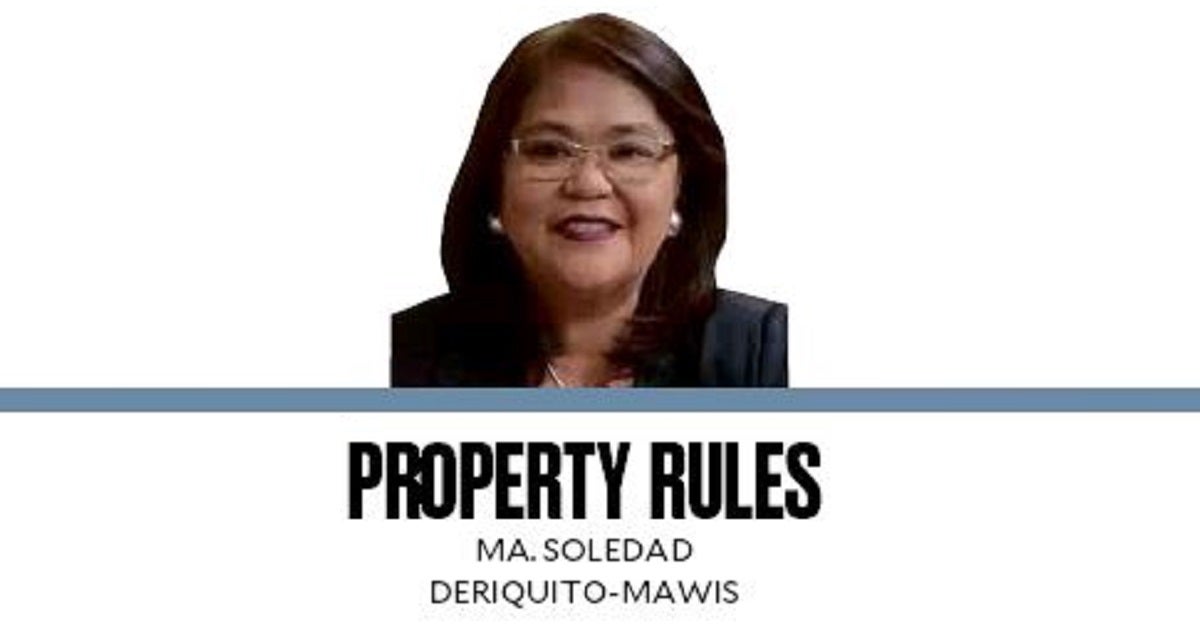The action must prosper

Ping was the registered owner of a condominium unit. Ping became delinquent in the payment of the association dues amounting to more than P4 million. Thus, condominium corporation caused the annotation of its lien on the pertinent condominium certificate title.
Meanwhile, due to Ping’s nonpayment of real estate taxes, the City Treasurer levied the condominium unit. The property was then sold in a public auction to the highest bidder, Eddie. There being no redemption made by Ping within the one year period provided under the Local Government Code, the city issued a deed of conveyance in favor of Eddie.
Later, the condominium corporation filed a complaint for foreclosure against Eddie and Ping. The corporation demanded for payment of the unpaid association dues, and in case of default, for foreclosure of the encumbrance over the condominium unit.
Eddie countered that the corporation had no cause of action to judicially foreclose on his newly acquired property because the tax lien, which was already foreclosed by the city, was superior to any other encumbrance, including the condominium’s supposed lien for the association dues.
If at all, the right of the corporation was limited to redeeming the property, which it failed to do. Hence, the issuance of the absolute deed of conveyance in favor of Eddie.
So, Eddie insisted that he bought the condominium unit free from any encumbrance or third party claim. Eddie also opined that the corporation cannot recover the assessed amount as it failed to send him an extrajudicial demand, making the filing of the action premature.
Q: Is the condominium lien on the CCT preferred than the tax lien of the city’s? If yes, what then is its effect?
A: Yes, there can be no question as to the validity and preference of the corporation’s lien since it was annotated on the CCT earlier than the tax lien. Prior annotation of a lien creates a preference given that the registration is the operative act that binds the real property.
When Eddie purchased the condominium unit during the tax sale, it is understood that any lien previously annotated on the CCT subsists. The prior lien is deemed incorporated into and must be carried over to the new title because it is a right in rem that directly subjects the property itself to the fulfillment of the obligation.
Hence, the corporation’s right cannot be impaired because its lien is inseparable from the property upon which it is imposed, and it subsists notwithstanding a change in ownership of the unit.
Q: Was the filing of the corporation’s complaint premature because it failed to allege prior demand on Eddie?
A: No. To recall, the condominium’s complaint for judicial foreclosure prayed for the following alternative reliefs: (1) that Eddie be ordered to pay the outstanding association dues, and (2) should Eddie fail to pay, that the condominium unit be sold at public auction and the proceeds be applied in accordance with Rule 68 of the Rules of Court.
By filing the court case, the corporation was effectively demanding fulfillment of the obligation owed by Eddie under the law.
Fundamentally, Article 1169 of the Civil Code does not require a creditor to precede a judicial demand with an extrajudicial prior demand.
Thus, unless otherwise stipulated by law or by the terms of the contract, an extrajudicial demand is not required before a judicial demand can be resorted to. The creditors contemplated under Article 1169 have an unconditional right of action against their debtors, i.e., to demand the payment of a due and liquidated debt.
The creditors may also enforce this right in any manner allowed by law, by themselves extrajudicially, or through appropriate judicial action for payment or performance. The only difference is that until such demand is made, the debtor is not yet considered in legal delay or default, hence, the creditor is not entitled to damages or interests, as stated in Article 1170 of the Civil Code.
Thus, when there is an extrajudicial demand prior to the filing of a complaint for recovery of a debt, the creditor is allowed to collect damages or interests at the rate agreed upon, counted from the date such extrajudicial demand was served and until full payment.
In contrast, a judicial demand, or the immediate filing of a complaint in court, would entitle the creditor to damages in the form of legal interest.
Absent any stipulated interest rate would reckoned only from the date of the filing of the suit—or when demand is deemed legally made, until full payment.
Q: Whether an action for judicial foreclosure requires prior extrajudicial demand for the payment of the principal obligation.
A: No. As soon as a debt becomes due, the creditor gains not only the right to demand—judicially or extrajudicially—its payment or fulfillment from the debtor. In addition, the creditor becomes entitled to the right to initiate foreclosure of the security as payment. This choice of relief finds basis in Article 2087 of the Civil Code.
Indeed, without a demand, the default of the debtor cannot arise,” based on Article 1169 of the Civil Code.
However, the condominium’s (a) unpaid assessments that were duly annotated on the CCT constituted proof of the existence of a due and liquidated debt, which gave petitioner every right to demand for its payment, whether by recovery of a sum of money or enforcement of its special property lien; and (b) the corporation’s filing of a complaint for judicial foreclosure, in itself, constituted demand for the payment of respondent Lim’s debt.
After all, foreclosure is but a necessary consequence of the nonpayment of the indebtedness. (Source: Goldland Tower Corporation vs. Lim and Hsiu-Ping, G.R. No. 268143, August 12, 2024, Lopez, M., J, Second Division)
The author is the Dean, College of Law at Lyceum of the Philippines University and founder of Mawis Law Office
Dean, College of Law (Makati and Cavite Schools), Lyceum of the Philippines University



















